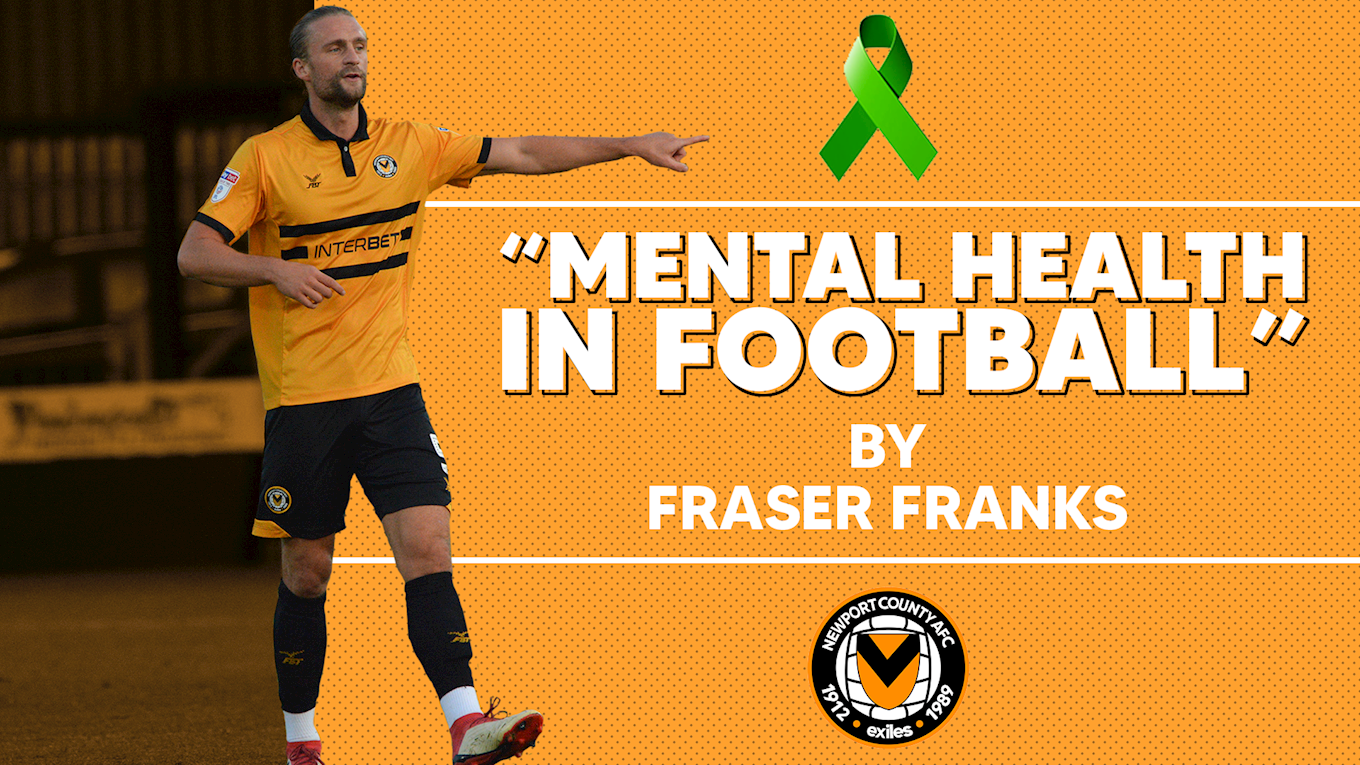Being a footballer for me was the best job in the world. It gave me a huge purpose and was the only thing I ever wanted to do as a child.
It can give you the best and worst moments and the profession is one which is a rollercoaster from minute one. Mental health within football and sport has started to become a subject which we feel more comfortable talking about and that is a huge starting point which can help so many.
During my career I was witness to multiple issues and also suffered from some myself. This isn’t saying this doesn’t happen in every other profession and walk of life, but I just wanted to give an insight into how it can be in the football world and maybe some things that fans may not see
It’s a hugely competitive industry and one I entered as an 8 year old when I was signed by Chelsea’s academy. I loved my time there but for such I young age I felt under massive pressure and almost became scared of football. I was always fearing that I’d be released, fearing making mistakes during games and probably not enjoying playing the game as much as kids should do. During this time, I also suffered my first taste of rejection when I was released aged 15. Playing for an academy like Chelsea I was always subject to a lot of jealousy in school and had people in the school that would try to kick me and injure me just because they felt they should be the ones at Chelsea. This can be tough for some young academy players and I’ve seen it much worse that I had it.
Going into full time football and professional football I started to see other issues in the game. Players who would struggle with form and confidence was one of these. I had seen players so low and who didn’t want to go out and play as they feared being jeered by their own fans if they had made mistakes, trolled on social media and battered in the press. Being a professional, any mistake you make on and off the pitch is there for all to see. If you have had a nightmare moment which has led to your team conceding, you know that its going to be shown on TV over the weekend and everyone can see that mistake with their own eyes. This is where it can differ from other industries, if you make a mistake in the majority of jobs there are still consequences, but it usually doesn’t go any further than the workplace. It isn’t replayed so that everyone else can see what has happened.
Other issues I have seen are homesickness. Being a footballer, you have to get used to the idea that you may need to relocate at any time. Being away from family and friends can be tough for players, especially if they aren’t having a good time of it and could be injured on not being selected. It can be hard coming home from a bad day and sitting in an empty house away from loved ones and missing children growing up. I’ve seen lots of young players suffer when they make the transition into youth team football and have to move away from parents and get put into ‘digs’ where they are living with another family.
Injury is a big issue with mental health. A long term injury makes the job a lonely place. You can’t do what you love and what you are paid to do. You usually don’t get to mix with the boys as much as you are on a different schedule. You miss out on big games and are left at home when the team travel away. I had one of these injuries when I was younger and was out for the best part of a year but luckily I had a good family around me and the coaching staff at the club made me feel as included as they could which helped.
Players realise it is a short career and the majority fear retirement. It’s the only thing we have all wanted to do so it is tough to adjust when it is all over. I have seen players who are financially secure for life still struggle like a lower league player, purely because they feel like they have lost their purpose and people are no longer interested in them.
There are so many issues in everyday life in and out of football. Being mental health week, I just wanted to highlight some of the problems players may be suffering during a career. Often from the outside people can forget this and only see the glamour of being a professional footballer, but everyone is human and everyone is fighting their own battles. Hopefully this just raises awareness for players and fans and more and more people can be comfortable with discussing these issues and understanding the importance of good mental health.
ICYMI - Throughout the coming days we will be supporting Mental Health Awareness Week. You can read more about this in our launch article found here.
You can follow Fraser on Twitter @Fraserfranks

